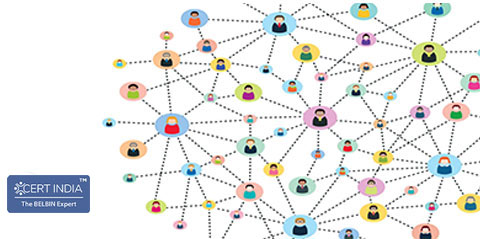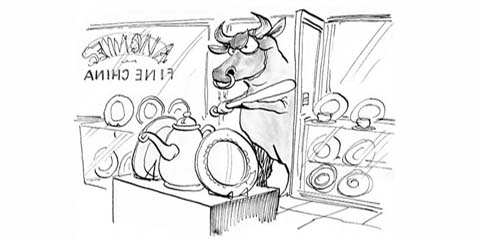“In the best teams, members listen to one another and show sensitivity to feelings and needs.”[1]
Google discovered this in their path breaking initiative - Project Aristotle – This is about Psychological Safety. In other words, it means, to be able to succeed, Teams members must feel safe to take risks, make mistakes, without fear of being drawn into a blame game. That's powerful! Because, Psychological Safety releases a lot of time and energy, for the Team to focus on achieving results, compete together winning in the world out there, instead of competing internally, managing threats from within.
“Psychological safety is not nearly as complicated as it may sound. After all, it's really about truly making a team come together as one and putting forth an environment that sets up everyone for success.” – Forbes
It takes the science of Belbin, to make that environment happen. For, unleashing potential within high potential people, who come together in a Team, is not about a days out door play, trust-building games, exercises, and one-to-ones. There is high performance at stake. So, what are a few practical steps you can take, to get your Teams to experience the warmth of psychological safety, in their daily interactions? Here are seven:
1. Treat others as they’d like to be treated, not as you would
It is human, to interact and work with our colleagues on our own terms ("That's the way I like to be treated"). Think again. Does that style go well with everyone? Do we all have the same behavioral preferences? Isn't it true that we all have different preferences to how we expect others to treat us? The question is, how do we know how others want to be treated. How can we learn how others prefer to communicate, interrelate, contribute, to a Team? Unless we learn that, how do we know how best to approach and work with them? Belbin Reports are a great way to get started. They give you an overview of each team member’s preferences, and how best they can contribute.
2. Encourage mistakes
Workplaces have struggled to keep focus away from the 'half glass empty'. The focus on weaknesses has been counter productive, often creating opportunities for finger pointing, self doubt, and a reason to 'hide the bad news'. Learning the language of Belbin Team Roles, or behavioural styles, encourages us to see and own our weaknesses as a flipside to a certain behavioural strength. This approach provides a framework for the Team, to freely talk about what goes wrong and why, and to develop strategies that counteract these difficulties.
3. Drive accountability
Helping Teams to stay away from finger pointing and blame game does not mean encouraging them to stay away from accountability. A Belbin'ed Team has no tolerance for loose canons who take away from the Teams efforts. In Teams that practice Belbin, Team Members take accountability and ownership for: (a) Articulating one's strengths effectively, in ways that others understand. (b) Sacrificing one's behavioral preferences for the sake of Team Objectives, where necessary in the short term. (c) Being responsible about one's own shortcomings, by collaborating and working in partnership with others. (d) Voluntarily offering one's strengths to 'complement' others in areas where they may feel challenged. This ability to spontaneously graduate from 'collaboration' to 'complementarity' gives Belbin Teams the much needed edge to win in a VUCA world.
4. Encourage conflict
Richard J. Hackman’s study observed that disagreements were good for a Team, when they were handled well. While it is tempting to follow the metaphor 'Birds of a feather flock together', it helps to remember most homogenous teams find themselves grounded more often than they fly high. In the workplace, behavioral diversity has its advantages, for high performing teams. Consider a critical Project Team for example. As Belbin Teams will learn, the behavioral contributions necessary from Team Members keeps changing as the project progresses. It is important that those behaviors are made available at the right time. Belbin'ed Teams know how. Homogenity makes life comfortable and quiet. But that's not what High Performance Teams are made for. Great Teams feel good when they accomplish great results. The adventurous journey through foggy choppy terrain offers no opportunity for comfort, when on the way. The feeling of having performed to their highest potential, makes high performing teams crave for more such challenge!
5. Allow behavioral diversity to flourish
Give Team Members the space they need to bringforth their behavioral preferences. When people dont find that space, they feel restricted, stressed, and when that feeling is not respected, it could trigger their feeling unsafe. For example, those who have a preference for new and creative thought (Plants and Resource Investigators, in Belbin Team Role lingo) need space to explore outside-in, left-field ideas and possibly present incomplete work, without being under too much pressure. So long as they are aligned to the Teams Objectives, they need their space. Doing this may mean keeping out of their way, the restrictive influences within the Team ( such as the analytical Monitor Evaluator or the practical Implementer, for example ) until these ideas find their feet. So too, when Shapers want to move first to implement a new responsive policy, Monitor Evaluators, need to feel able to apply the brakes.
6. Promote honest, constructive feedback
It is easy to say, Leaders have to roll up their sleeves, get their hands dirty, embrace vulnerability and walk the talk. Belbin Reports show leaders and team members where when and how they are most likely to succeed in living upto such expectations. Belbin helps Teams to make sense of feedback thoughtfully, and in perspective. Belbin lingo avoids extremes in positive and negative lexicon, while pointing out areas for development with helpful practical advice, that comes from decades of expertise in helping transform individual and team performance. .
7. As a leader, balance the needs for guidance and autonomy
Different people have different preferences in their behavioral contributions. That includes you the Leader too. How can you, given your own behavioral preferences, flex and adapt to deliver on the diverse expectations your people have of you? What if in your Team, someone needs work delegated in detailed, specific terms, while someone else will see such approach as an intrusion and seek to be given their space? Belbin helps you understand how your behavioral preferences ( Team Roles ) influence your leadership style, and gives you the tools to meet your Team Members’ diverse individual needs and help them reach their full potential.
Are you ready to get started, in building the environment your Team needs to succeed? Ping us to discover how Belbin Reports can help promote Psychological Safety and deliver better performance.
References
What Google Learned From Its Quest to Build the Perfect Team, NY Times
...
This post was first published as ‘Using Belbin to build psychological safety in teams’ by BELBIN Associates – UK, in https://www.belbin.com/
...
Here are some quick and easy ways for you to get started with BELBIN. Pick the option that best speaks of your interest
- Keep me updated on upcoming events & latest insights from the Belbin world on transforming performance of people and teams
- Let me begin by downloading a 2 Pager on the nine BELBIN Team Roles
- Let me begin by downloading samples of a BELBIN Individual Report and BELBIN Team Report
- I want to BELBIN an individual and a team. Tell me how
- I want to get BELBIN Accredited. Tell me how.





















